Trends in Business Sales: What to Expect in 2025
The business sales landscape is ever-evolving, shaped by technological advancements, market dynamics, and shifting consumer behaviors. As we approach 2025, business owners, buyers, and investors must stay informed about emerging trends to make well-informed decisions. Whether you’re considering selling your business, buying one, or investing, understanding these trends will give you a competitive advantage in navigating the market.
In this post, we explore the key trends that are expected to shape business sales in 2025, providing you with insights into what to expect and how to adapt to the changing landscape.
1. Increased Demand for Tech-Enabled Businesses
Technology continues to be a driving force in business, and companies that successfully integrate tech solutions are becoming increasingly attractive to buyers. As we move into 2025, businesses with strong technology infrastructures are in higher demand, particularly those that have embraced digital transformation.
Why this matters:
- Businesses with robust e-commerce platforms, data-driven decision-making processes, and advanced software solutions are more scalable and efficient.
- Buyers are seeking businesses that have embraced technology because these companies tend to be more resilient in a rapidly changing market.
If you’re selling a business, showcasing your tech-enabled solutions and digital transformation efforts can significantly increase your appeal to potential buyers. For buyers, seeking out tech-savvy businesses will be crucial to staying competitive in the marketplace.
2. Growth in the Small and Medium-Sized Business (SMB) Market
In 2025, small and medium-sized businesses (SMBs) are expected to see a significant surge in demand. With large corporations facing challenges like market saturation and bureaucratic inefficiencies, SMBs are becoming more attractive to buyers looking for innovation, flexibility, and quicker decision-making processes.
Why this matters:
- The SMB market is benefiting from increased access to capital, a booming entrepreneurial spirit, and a drive for more agility in operations.
- Buyers are more likely to invest in SMBs that have a clear growth trajectory and the potential for scalability.
Sellers should consider highlighting the unique aspects of their businesses that set them apart, such as innovation, flexibility, and growth potential, to attract buyers. Buyers looking to enter the SMB market should focus on finding companies with growth potential in emerging sectors.
3. Emphasis on Sustainability and Social Responsibility
As consumer and investor preferences shift toward more sustainable and socially responsible businesses, these factors are becoming more important for buyers in 2025. Sustainability is no longer a niche market but a crucial consideration for many buyers who want to align their investments with their values.
Why this matters:
- Businesses that have committed to sustainable practices, such as reducing carbon footprints or sourcing materials ethically, are more likely to attract interest.
- Corporate social responsibility (CSR) initiatives are increasingly influential in the decision-making process for both buyers and investors.
Sellers should ensure that their sustainability and CSR efforts are well-documented and integrated into their business operations. Buyers, on the other hand, will look for businesses that have demonstrated a commitment to environmental and social responsibility.
4. Rising Popularity of Earn-Out Agreements
As competition over valuations heats up, earn-out agreements are expected to become more popular in 2025. Earn-out agreements allow sellers to receive a portion of the sale price based on the future performance of the business. This can help bridge the gap between buyer and seller expectations, especially when the valuation is uncertain.
Why this matters:
- Earn-outs can provide sellers with an opportunity to maximize their returns if the business performs well after the sale.
- Buyers benefit by reducing their upfront risk, making this an attractive option in uncertain economic times.
Both buyers and sellers need to consider how earn-out agreements can benefit them. Sellers should ensure they understand the terms and conditions, while buyers should carefully evaluate how the earn-out structure aligns with their business goals.
5. The Impact of AI and Automation
Artificial Intelligence (AI) and automation are no longer futuristic concepts but integral parts of modern business operations. As we move into 2025, businesses that have implemented AI and automation to streamline operations, reduce costs, and improve customer experiences will continue to gain traction in the market.
Why this matters:
- Businesses leveraging AI for customer support, inventory management, or predictive analytics are seen as more efficient and innovative.
- Buyers are increasingly interested in businesses that are using AI and automation to gain a competitive edge.
For sellers, showcasing AI and automation in your business operations can increase its attractiveness to potential buyers. Buyers should focus on identifying businesses that utilize cutting-edge technologies to stay ahead of competitors.
6. The Rise of Remote and Hybrid Work Models
The COVID-19 pandemic accelerated the shift toward remote and hybrid work models, and this shift is now permanent for many industries. Businesses that have successfully adopted these models will be in high demand as we move into 2025.
Why this matters:
- Remote and hybrid businesses are seen as more adaptable, particularly in the face of unforeseen challenges.
- Buyers are looking for companies that can operate efficiently from any location, thanks to strong digital collaboration tools and flexible work environments.
Sellers who have embraced remote and hybrid work models should emphasize the stability and operational flexibility of their businesses. Buyers will be particularly interested in companies that have built strong remote work infrastructures.
7. Increased Focus on Intellectual Property (IP) Value
Intellectual Property (IP) has become a valuable asset in business valuations. As innovation drives business growth, IP assets such as patents, trademarks, and copyrights are becoming more critical components of a company’s value.
Why this matters:
- Businesses with a strong IP portfolio offer a competitive edge and long-term value.
- Buyers are increasingly interested in businesses with well-established and protected IP assets.
Sellers should ensure their IP is properly valued and protected, and buyers should carefully assess the IP portfolios of businesses they’re considering acquiring.
8. Globalization and Cross-Border Transactions
Globalization is making it easier for businesses to engage in cross-border transactions. In 2025, more buyers will be looking at international opportunities, and sellers with a global footprint or scalable products/services will attract more interest from overseas buyers.
Why this matters:
- Advances in logistics, technology, and communication make cross-border deals more feasible and efficient.
- Currency fluctuations and differing economic conditions across regions may present unique opportunities for international deals.
Sellers with international operations should highlight the scalability of their business models, while buyers should consider expanding their portfolios through cross-border acquisitions.
9. The Role of Private Equity in Business Acquisitions
Private equity firms continue to play a key role in business acquisitions. With large amounts of capital to deploy, private equity investors are actively seeking businesses with high growth potential.
Why this matters:
- Private equity can provide the financial resources and expertise necessary to accelerate a business’s growth.
- Sellers should consider how private equity investment can benefit their business, especially if they’re looking to scale quickly.
Both buyers and sellers should understand the role of private equity in business transactions and how it can impact the acquisition process.
10. The Continued Importance of Buyer-Seller Relationships
While technology plays an increasingly important role in business transactions, the relationship between buyer and seller remains crucial. Trust, transparency, and communication are essential factors in ensuring a smooth and successful sale.
Why this matters:
- Buyers are more likely to complete deals with sellers who are open, honest, and cooperative.
- Sellers who foster a positive relationship with buyers are more likely to achieve favorable terms and a successful sale.
Sellers should focus on building strong relationships with potential buyers by providing accurate and transparent information, fostering trust, and creating an open dialogue throughout the negotiation process.
Conclusion
As we move into 2025, the business sales market will continue to evolve, driven by technological innovation, sustainability efforts, and changing market dynamics. By staying informed about these trends, business owners, buyers, and investors can make strategic decisions that align with the current market landscape.
Whether you’re preparing to sell your business, looking to acquire one, or considering an investment, understanding these key trends will help you position yourself for success in the ever-changing business environment. Keep an eye on these developments to stay ahead of the competition and navigate the business sales process with confidence.
